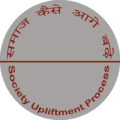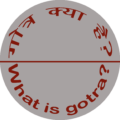Dhanuk Caste

अमर शहीद रामफल मंडल
The Dhanuks is called Dhanuk Caste, who are settled in the Terai districts of Saptari, Siraha and Dhanusa, are either Dalits or a minority indigenous people. Dhanuks are called Rajbanshis. It is also called vanvasi. The Dhanuks of eastern Terai are called Kurmi and Patel in the Western Terai.
What are their lives like?
The rites of birth, death and marriage are performed by giving due importance like other tribes. The pregnant woman is kept in a separate home to arrange assistance from dagrin (midwife) of Chamar caste. The baby is caused to cry as soon as it is born. The ghosts are driven away by putting the branches of jujube and thrownaway shoes in the main gate of the house. The baby is given the milk of she-goat to drink. Chhaiti is done in six days and Barahi in twelve days. In Barahi, worships and festivities are arranged.
Dhanuks do not marry within the clan nor do they have the practice of cross-cousin marriage. In most of the cases, the parents seek the girl or the boy. Due to the influence of neighbours they also have the system of dowry.
When a Dhanuk dies, the corpse is cremated if the deceased is above 12 years of age and is burried if her or she is below 12 years.
The houses of Dhanuks are plastered with mud and pictures are drawn of mud, too. Women go outside for work but a male member remains the head of the family. Lots of feasts are organized on various occasions. Some Dhanuks never drink spirit and jaand but Dhanuks in general have the practice of drinking raksi or spirit.
The houses of Dhanuks are built in cluster in the river basins and edges of forests. They like to settle in river basins. A group of ten or eleven households makes a bindar committee and five bindars constitute a praganna. The chief of praganna is called maijan. There is one post, called Chaurasi, above him. These institutions manage tribal reconciliation and settlement of disputes. Those who do not abide by rules are expelled from the ethnic group. Mandal, Mahato and Kurmi are their thars (clans).
Since they dwell in the river basins and the edges of forests, they do fishing and animal husbandry. Some people of various types within the Dhanuks are even big landowners, but the Dhanuks who belong to the group of minority nationality are absolutely landless. They earn their livelihood by working as agriculture labourers and household servants.
What are their beliefs?
In some places Brahmins are appointed as priests while in other places they use Dhanuk priests. Dhanuks believe in magic, witchcraft and ghosts. They are divided into two groups in terms of religion: those who worship Kali are called Kaliyaha and others are called Maharkhiya. Those who worship Kali eat meat of pig (pork) and drink spirit or wine, whereas Maharkhiyas do not do so. They worship a goddess called Gahil, who is one of five sisters. The other goddesses are Shitalmata and Goureya Gaiya. The main occupation of Dhanuks is working for big zamindars (landowners) and farming.




Recent Comments